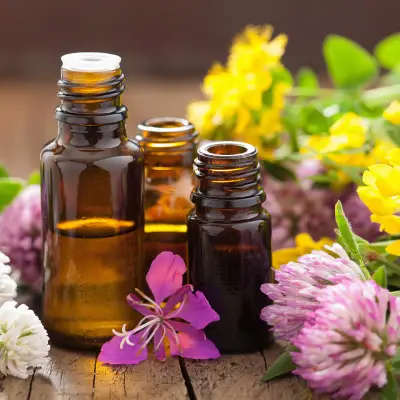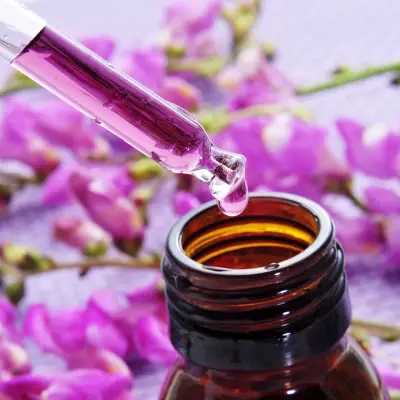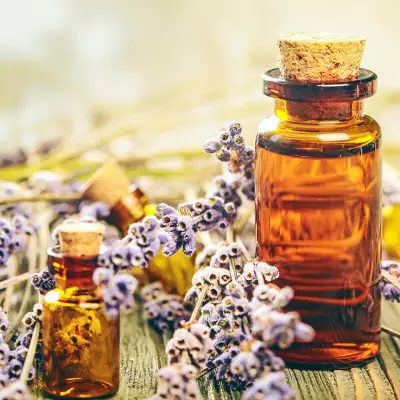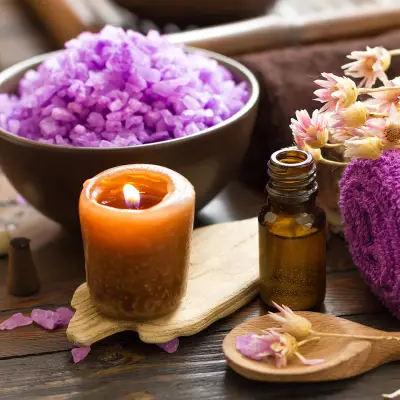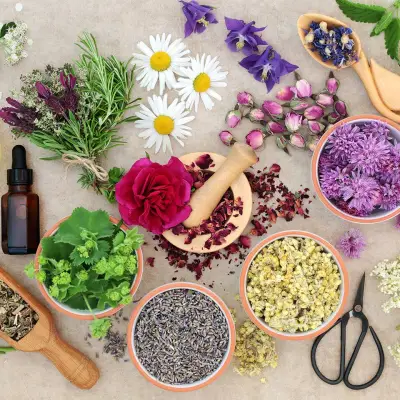When life feels overwhelming and stress and anxiety creep in, many people turn to natural remedies in the hope of finding calm. One such remedy that’s gained popularity over the years is lavender oil. You might have heard of it being used in spa treatments, sleep sprays, and supplements. But does lavender help with anxiety, and is it actually effective?
This blog post explains how lavender oil works for anxiety, its benefits, how to use it safely, and any possible side effects you should be aware of.
This article is for informational purposes only and does not constitute medical advice. Always consult with a qualified healthcare professional before starting any new essential oil treatment, especially if you have underlying health conditions or allergies.
Jump to:
Recommended for you!
Best SellersWhat Is Lavender Oil?
Lavender oil is an essential oil extracted from the flowers of the lavender plant, Lavandula angustifolia. It’s well known for its soothing fragrance, often described as floral, clean, and slightly herbal. You’ll find it in everything from pillow sprays and massage oils to capsules and skincare products.
Traditionally, it’s been used to promote relaxation, reduce inflammation, ease pain, and support sleep. More recently, researchers have explored its role in mental health, particularly in helping those struggling with stress, anxiety, and nervous tension.
Why Does Lavender Make You Feel Calm?

Lavender’s calming effects are thought to come from its interaction with the brain’s chemical messengers, especially those involved in mood regulation. Compounds in the oil, like linalool and linalyl acetate, are believed to affect the limbic system, the part of your brain that controls emotions.
Lavender Oil Benefits for Anxiety
Let’s explore how this fragrant oil might help you feel more at ease:
1. Reduces Feelings of Anxiety and Stress
Several studies have shown that consuming lavender essential oil, whether through aromatherapy or oral supplements, can significantly reduce anxiety symptoms. It’s particularly useful for generalised anxiety disorder (GAD) and mild stress-related symptoms.
People often report feeling more centred and less overwhelmed after using lavender regularly. One notable clinical trial even found that oral lavender for anxiety worked as well as some anti-anxiety medications, but with fewer side effects.
2. Supports Better Sleep
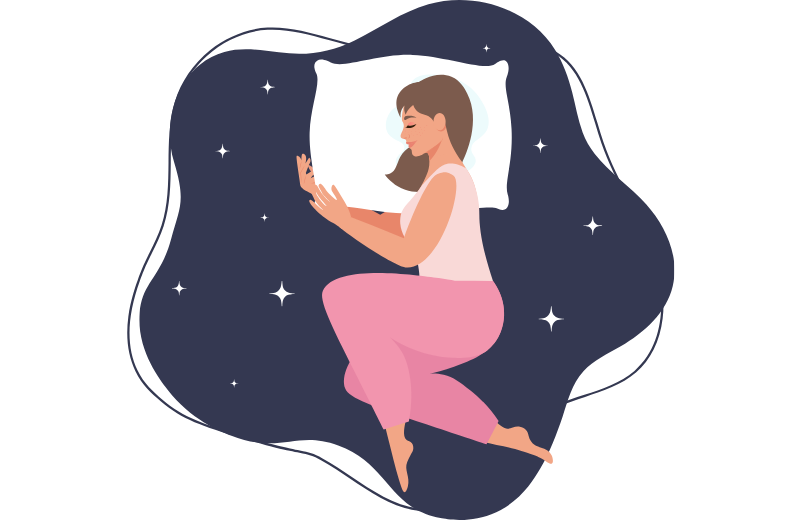
Anxious thoughts and poor sleep often go hand in hand. Lavender’s relaxing properties may help quiet the mind at bedtime, making it easier to fall asleep and stay asleep.
This is where lavender blends beautifully into nighttime routines, diffusing it in your bedroom, adding it to a bath, or using a lavender-infused pillow spray can help your body and brain unwind naturally.
3. Calms Physical Symptoms of Anxiety
Anxiety doesn’t just affect your thoughts; it can also cause physical symptoms like muscle tension, rapid heartbeat, and shortness of breath. Lavender's calming effects may help soothe these reactions.
Massaging diluted lavender oil onto your temples, chest, and wrists could provide quick, gentle relief. It's also useful in massage therapy, where the combination of touch and scent enhances overall relaxation.
4. May Improve Overall Mood

There’s evidence to suggest that lavender can have a subtle antidepressant effect. While it’s no substitute for professional mental health care, using lavender oil regularly may help lift your mood and improve emotional balance.
This makes it a helpful companion not just for anxiety, but also for low mood and emotional burnout.
How to Use Lavender Essential Oil for Anxiety
If you’re wondering how to use lavender essential oil for anxiety, here are some simple and effective ways to add it to your routine.
1. Aromatherapy
Inhaling the scent is one of the fastest ways to experience lavender’s calming effects. Try:
- Diffusing 3–5 drops in an oil diffuser
- Inhaling directly from the bottle (for short bursts)
- Adding a few drops to a tissue and keeping it nearby
- Using a lavender roll-on on your pulse points
Many people feel a difference within minutes of inhalation, though consistent use tends to offer longer-lasting effects.
2. Topical Application
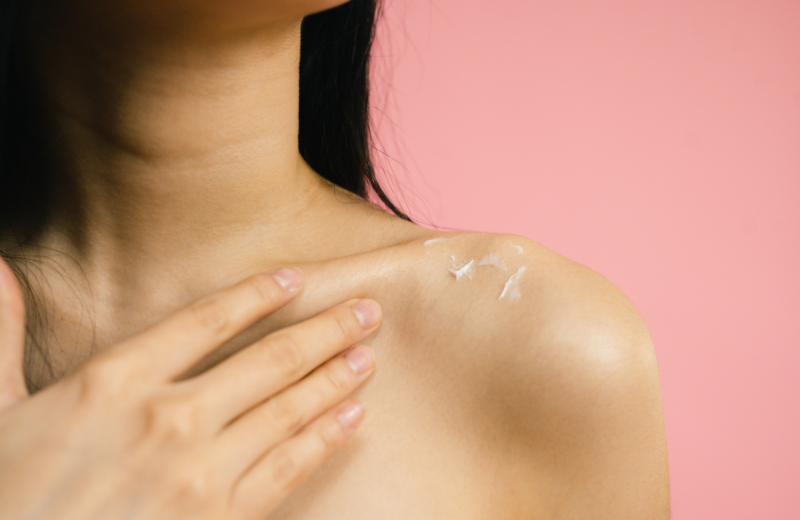
You can dilute lavender essential oil in a carrier oil like almond, coconut, or jojoba oil, then apply it to the skin. This is ideal for:
- Massaging into your shoulders or neck after a long day
- Adding to a warm bath
- Applying to your chest or soles of your feet at bedtime
Be sure to perform a patch test first, especially if you have sensitive skin.
Where Do You Put Lavender Oil for Anxiety?
If you're using it topically, some of the best places to apply it are:
- Temples (for mental calm)
- Wrists (for ongoing scent exposure)
- Neck and shoulders (to ease tension)
- Soles of the feet (to support rest and sleep)
Just remember to dilute it properly in a carrier oil before applying to the skin.
3. Oral Supplements
For more consistent results, you might consider lavender capsules or supplements. These typically contain a standardised amount of oil (often known as Silexan) and are used under guidance from a healthcare provider
Lavender oil tablets are often taken daily, and results may be noticed within a few weeks. Always read the label and talk to your doctor before starting a new supplement.
How Much Lavender Should You Take for Anxiety?
If you're using oral lavender, the recommended doses range from 80 to 160 mg of lavender oil per day. But this can vary depending on the brand and your personal needs. Always follow dosage instructions carefully and consult a medical professional if you’re unsure.
Recommended for you!
Best SellersSide Effects of Lavender Essential Oil
Lavender is generally safe when used as directed, but like all remedies, it isn’t completely risk-free. Here are some things to consider.
- Skin Sensitivity: Applying undiluted lavender oil directly to the skin can cause irritation or allergic reactions in some people. Always dilute with a carrier oil and patch test before use.
- Hormonal Effects: Some studies suggest that long-term use may affect hormone levels, particularly in young children. Speak to your healthcare provider if you have concerns about this.
- Drowsiness: Because lavender promotes relaxation, it may cause drowsiness. Avoid using it before driving or operating machinery until you know how it affects you.
Who Should Not Take Lavender?
You should avoid lavender oil or consult a professional before use if:
- You’re pregnant or breastfeeding
- You’re taking sedatives or anti-anxiety medication
- You have hormone-sensitive conditions (e.g. endometriosis)
- You’re under 12 years of age
When in doubt, always check with a medical expert before starting a new supplement or essential oil, especially if you plan to use lavender oil for stress and anxiety long term.
Study Our Aromatherapy Diploma Course for £29
If you’re fascinated by the benefits of lavender oil, why not turn your interest into a skill? At Centre of Excellence, we offer an Aromatherapy Diploma Course that explores different essential oils, blending techniques, safety precautions, and how to apply your knowledge at home or professionally. As a special offer, you can access the Aromatherapy Diploma Course for just £29!


